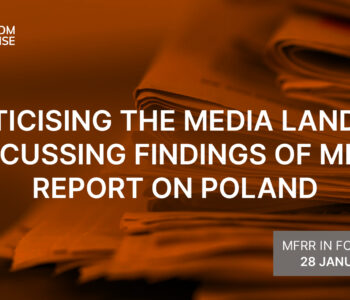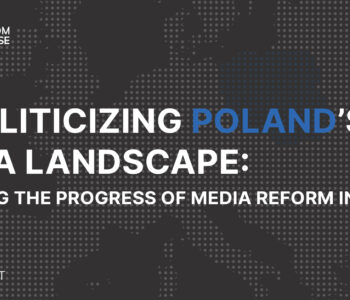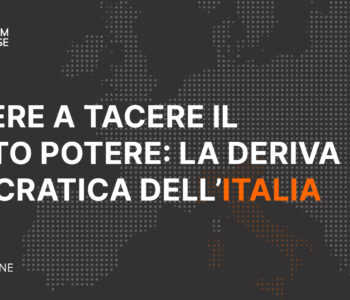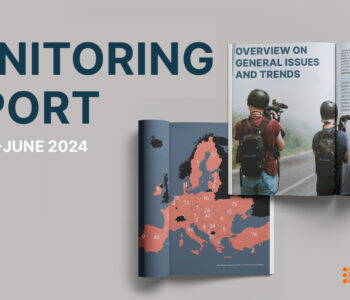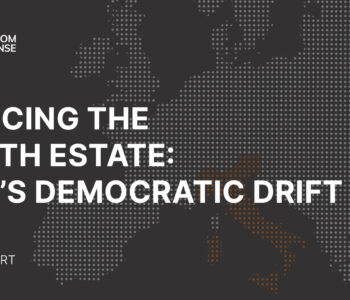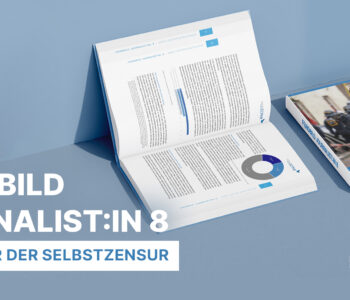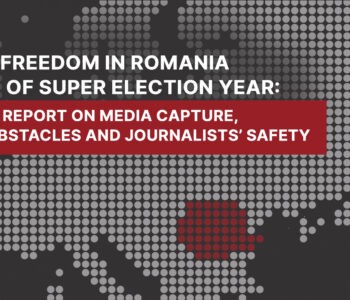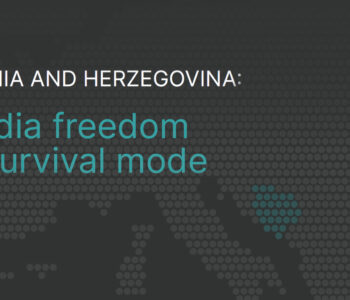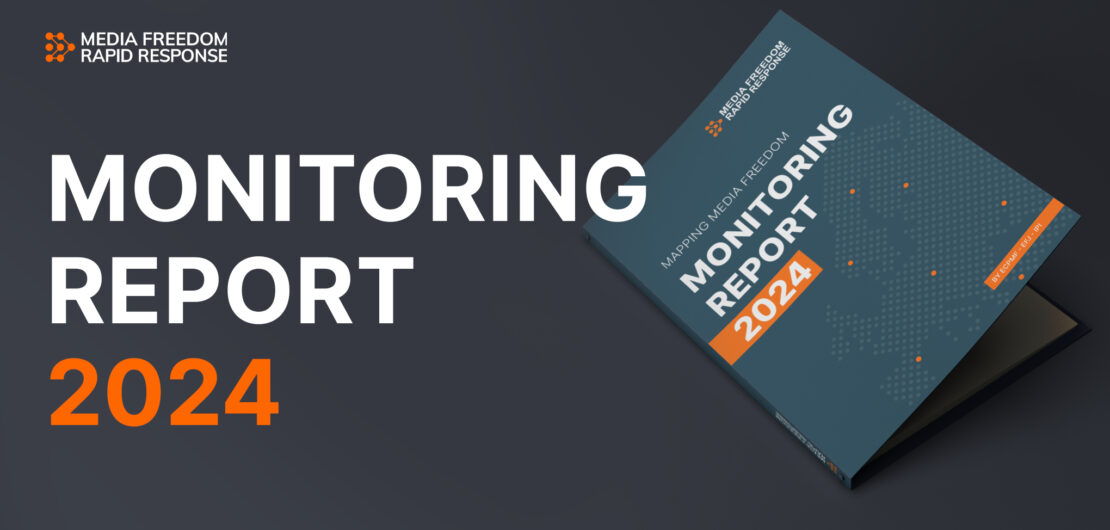 Allgemein
Allgemein
Monitoring Report 2024: 1,548 media freedom alerts in the…
Monitoring Report 2024: 1,548 media freedom alerts in the past year
The latest annual Monitoring Report analyses the press freedom situation in 35 European countries, including the 27 EU Member States and nine countries with EU candidate status. Between January and December 2024, Mapping Media Freedom documented 1,548 press freedom violations targeting 2,567 media-related persons or entities – an alarming increase compared to the 1,153 violations recorded in 2023.
Smear campaigns, websites disguised as legitimate news outlets, and obstruction and attacks during reporting are just a few of the major issues media workers faced in 2024. Journalists also faced verbal attacks, physical assault, attacks against property, censorship, and legal threats. Especially worrying is the continuous rise of online attacks, including online harassment, death threats, hacking, DDoS attacks, and spoofing. Mapping Media Freedom recorded 359 online attacks in 2024, a sharp rise from 266 cases in 2023, with verbal abuse making up 60% of digital threats.
Private individuals were the main perpetrators of press freedom violations in 2024, accounting for 467 documented cases. Public authorities and government entities were responsible for 256 violations, reflecting increasing hostility toward journalists from both state and non-state actors. Blocked journalistic activity was the most frequent press freedom violation in the EU, with one in four cases involving journalists being denied access to events, refused information, or facing editorial interference.
Legal attacks against journalists also surged in 2024, with 319 cases affecting 556 media professionals or entities. In addition, censorship and interference rose significantly, from 23.7% in 2023 to 35.6% in 2024. This was particularly evident in environmental and election reporting, with 69 violations linked to environmental journalism, often occurring at climate protests, and 206 violations related to election coverage, with censorship and verbal attacks being the most common issues.
Physical violence remained a serious concern, with 266 documented attacks on media workers. In 117 cases, journalists suffered injuries, and tragically, Reuters security officer Ryan Evans lost his life in a Russian missile attack while on duty in Ukraine. The country recorded 141 press freedom violations in 2024, with media infrastructure frequently targeted by cyberattacks, hacking, and DDoS attacks.
Spoofing and disinformation tactics, including AI-generated deep fakes and cybersquatting, posed growing threats, with 37 documented incidents in 2024. In most cases (83.8%), the perpetrators remained unidentified.
Most frequently, journalists were attacked online, with 359 cases recorded, including online harassment and death threats, but also hacking or DDoS attacks.
Demonstrations and protests were also among the most dangerous environments for journalists in 2024, with 271 incidents recorded. In 51% of these cases, journalists were physically attacked, often by police or state security forces.
The 2024 Monitoring Report is structured in four parts:
- A general overview highlighting major issues and trends of the press freedom situation in EU Member States and candidate countries, including quantitative analysis and charts with statistics.
- Three thematic chapters on prominent topics within press freedom in Europe: Spoofing, Elections, and Environmental Reporting.
- An analysis of the press freedom situation in six EU Member States: Belgium, France, Hungary, Italy, Slovakia, and the Netherlands.
- An analysis of the press freedom situation in six EU candidate countries: Albania, Bosnia and Herzegovina, Georgia, Serbia, Turkey, and Ukraine.
This report has been compiled by the European Centre for Press and Media Freedom (ECPMF), the European Federation of Journalists (EFJ), and the International Press Institute (IPI) as part of the Media Freedom Rapid Response (MFRR) project. The project is co-financed by the European Commission.

